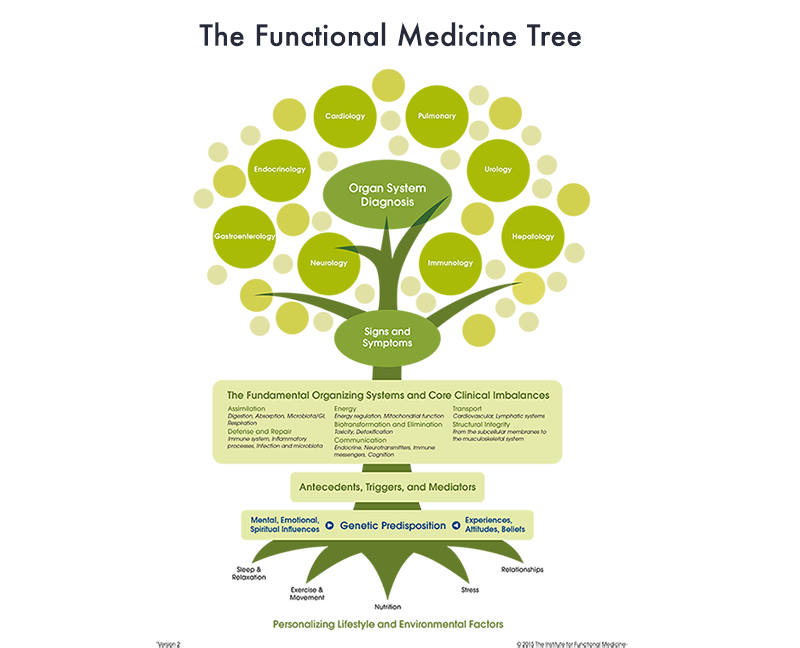You will have heard me talking about Functional Medicine, but do you really understand what it is?
- Functional Medicine addresses the whole person, not just an isolated set of symptoms.
- Functional Medicine practitioners spend time with their patients, listening to their histories and looking at the interactions among genetic, environmental and lifestyle factors that can influence long-term health and complex, chronic disease.
- Functional Medicine supports the unique expression of health and vitality for each individual.
Why do we need functional medicine?
Our society is experiencing a sharp increase in the number of people who suffer from complex, chronic diseases, such as diabetes, heart disease, cancer, mental illness, and autoimmune disorders like rheumatoid arthritis.
A Functional Medicine practitioner will consider multiple factors, including:
Environmental factors
The air you breathe and the water you drink, the food you eat, the quality of the food available to you, your level of physical activity, and toxic exposures or traumas you have experienced all affect your health.
Mind-body connections
Psychological, spiritual, and social factors all can have a profound influence on your health. Considering these areas helps the Functional Medicine practitioner see your health in the context of you as a whole person, not just your physical symptoms.
Genetic makeup
Although individual genes may make you more susceptible to some diseases, your DNA is not an unchanging blueprint for your life. Emerging research shows that your genes may be influenced by everything in your environment, as well as your experiences, attitudes, and beliefs. That means it is possible to change the way genes are activated and expressed.
Through assessment of these underlying causes and triggers of dysfunction, a Functional Medicine practitioner like me is able to understand how key processes are affected.
These are the body’s processes that keep you alive. Some occur at the cellular level and involve how cells function, repair and maintain themselves.
These processes are related to larger functions, such as:
- how your body rids itself of toxins
- regulation of hormones and
- neurotransmitters
- immune system function
- inflammatory responses
- digestion and absorption of nutrients and the health of the digestive tract
- structural integrity
- psychological and spiritual equilibrium
- how you produce energy
Functional Medicine integrates traditional Western medical practices “integrative” medicine, creating a focus on prevention through nutrition, diet, and exercise; use of laboratory testing and other diagnostic techniques; supplements, therapeutic diets, detoxification programs, or stress-management techniques.
If this blog has got you thinking more about your general health, weight loss, immunity or gut health I would be delighted to talk to you about how I can help.
Check out the link below for a free 20 minute consultation or send me an email at: info@suzannahjacksonnutrition.co.uk
I am a fully qualified Nutritional Therapist and can work with you to create a plan specific to your body’s needs and your personal health and fitness goals.

